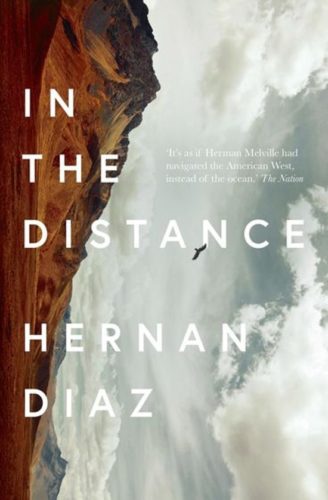Review: In the Distance by Hernan Diaz

Wandering in endless isolation
I was enjoying this book until suddenly I wasn’t.
It started well enough.
Two brothers are migrating from Sweden to New York in the 1800s. The main character, Hakan, gets lost then accidentally boards a ship going to San Francisco.
Once he arrives, Hakan decides he will cross the continent to find his brother on the other side.
But very soon the story loses traction.
Hakan has a series of wacky encounters with generic stock characters that lead almost nowhere. Between these encounters, he meanders alone, at one point spending years digging tunnels to live underground.
Moments of character development are also few and far between.
Most disturbingly, the author uses the sexual assault of a female character as a plot device to invoke violence from Hakan.
The female character is a love interest who is present in the story for one chapter.
One. Chapter.
What we know about her is limited to this: She is attractive, keeps a clean home, provides food, and is caring. Wow.
During an attack on their camp, the love interest is sexually assaulted and killed. Hakan then avenges her by killing the abusers.
It’s repulsive that an author would create a female character purely for the purpose of having her sexually assaulted, and use this as a cheap short-cut to advance the male character’s development.
I don’t believe authors can afford to write female characters as disposable caricatures anymore. (But the fact this book was a Pulitzer Prize finalist proves me wrong).
In terms of style, I can say the book was nicely written, in a clean and sterile kind of way (i.e. it lacked charisma).
At times whole paragraphs were repeated as a literary technique to check if you were still awake, and lists of nouns were often used instead of descriptions. Sand. Sky. Wind. Thirst. Boredom.
So tedious.
I believe ‘In the Distance’ was intended to achieve pretentious literary merit be a poignant meditation on life and loneliness.
I could constantly feel the author pulling strings to manipulate me into thinking ‘what a beautiful metaphor for the aimlessness of life, always moving towards something but never getting there’.
I found this exceedingly contrived.
Rather than achieving poetic surrealism, the book verged into depressing absurdism.
I appreciated the author’s choice to move from west to east against the flow of Gold Rush migration, and the Swedish origin of the character, since these features are not usual in Westerns. But apart from this, I cannot offer any praise for ‘In the Distance’.
I was holding out until the end because I wanted to know if Hakan would make it to New York and possibly find his brother. Sadly, the ending was not worth the effort.
A miserable 1 out of 5.
A better option to explore solitude in the desert: Tracks by Robyn Davidson
*Other items I need to get off my chest:
- Hakan himself is sexually abused by a villainous female character, which serves no clear purpose in the story. The tone of this scenario invites morbid curiosity from the reader, which is deeply problematic. Does the author believe a scene with a male being abused helps to ‘even out’ the sexual assault of the female love interest? Does the author think sexual assault is titillating? Ugh.
- There are explicit descriptions of heterosexual assault scenes, but a romantic same-sex relationship is implied and immaturely stepped around.